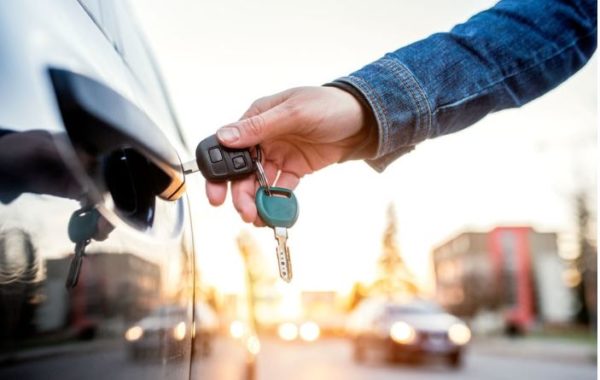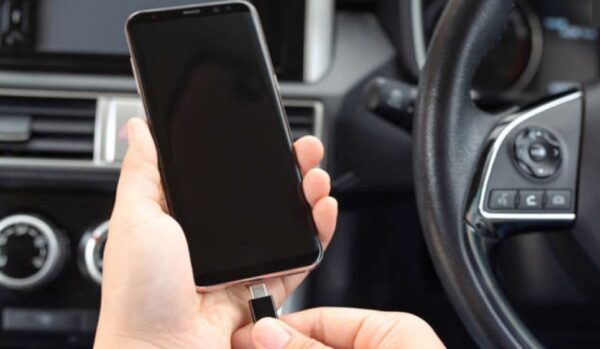Lifestyle
6 things to consider when buying a car online

The convenience of purchasing a vehicle from the comfort of one’s home is tremendous.
We no longer have to waste time travelling and visiting dozens of dealerships in our city to find the perfect car.
Additionally, due to the continued effects of the Covid-19 pandemic, buying a vehicle remotely presents a far safer option for everyone. It is as simple as using a smart device and opening a browser.
Car dealerships also have plenty of online tools to make our lives easier. Regardless, acquiring a car is no small step.
There are many things we have to check before committing to a purchase. Even if it represents the most financially viable option for you, the risks of buying a used car are always there.
In this article, we will be talking about what to look for when buying a car online in South Africa.
At the same time, we will discuss the steps to buying a used car in order to maximize the satisfaction of the purchase and minimize any possible buyer’s remorse.
Steps to buy a used car
Due to the collapse of the economy, many consumers opt towards purchasing a pre-owned car. Even though the prices of these vehicles are more budget-friendly, it is important to understand the risks involved when buying a used car. Running thorough checks are essential for a satisfactory purchase.
Knowing how to buy a car in South Africa under these conditions can be tricky. Fortunately enough, following the steps outlined below will ensure you get a great deal.
1. License plate lookup
Checking the license plate history of a car is a great way to learn about a vehicle. If you meet up with a seller and do not think you are getting the vehicle’s complete history, a quick license plate lookup is the best way to learn more about it. Checking on the license plate will give you some insight into any title re-branding on the car, confirm who the current owner is, or learn if the vehicle has any registration issues or if it was involved in any accidents or reported stolen.
2. Car specs
Another critical factor to consider is ensuring that the car is in top performance. You don’t want to buy a used car that, immediately after purchase, needs a plethora of repair work done to be safe for the road. Does the vehicle have a firm suspension? Does it remain stable at high speeds? Are you able to listen to clunks on bumpy roads? Do the gears respond in a quick fashion? How about the clutch and the brake?
A good place to start is to check the vin number when you need to know car specs. Most dealers out there have a responsibility to review this before selling a vehicle. But it doesn’t hurt to conduct some extra tests yourself alongside a mechanic you trust to assess if the vehicle’s condition is appropriate.
3. Service history
Regular servicing goes a long way in extending a vehicle’s lifespan. It is important to check a vehicle’s service history to confirm that all its routine health checks were adequately carried out. When buying a used car, you will want to ensure that the engine’s fluid levels were always kept optimal, that its oil and filters were changed at the correct intervals, that the owner replaced its tires regularly, and a number of other things..
Obtaining a comprehensive service history is essential to assess its condition. It might be challenging to accrue a complete history on ridiculously cheap used cars, but checking on this is vital if you are buying a more expensive vehicle second-hand.
4. Stolen vehicle check
Having to deal with legal matters after accidentally purchasing a stolen car is something no one wants to go through. If you have your eyes set on a particular used vehicle online and notice its price is too good to be true, you might want to run a stolen vehicle check. The vehicle’s selling price should match those of similar models of the same age, condition, and mileage.
If a listing mentions no major service issue and the vehicle is available for a considerably lower price, there might be something fishy behind it. Reviewing the vehicle identification number through a VIN decoder online is the best way to check for any outstanding reports by local law enforcement agencies.
5. Vehicle recalls
Recalls occur from manufacturers when there’s a defect in the vehicle that affects the safety of its passengers. These manufacturing defects could be in its mechanical engine components, interior electronic equipment, seats, seatbelts, or just about any parts that could represent a risk to the passengers.
When buying a used car, even if the seller says there are zero recalls on it, a word of advice is to double-check. Here, the VIN is another handy tool to check if there are any vehicle recalls.
6. Odometer tampering
How does one check if the car mileage is genuine? Sadly, some people tamper with a vehicle’s odometer to display less mileage than it actually has. People often resort to this criminal practice of “cutting back” on the mileage to get better value on their car.
A good tip here is to check the car’s service book ensuring that everything lines up with the current mileage. Reviewing the service stickers, the handwriting, or the stamps of its previous service appointments to look for any sign of alteration are also good ideas. If this doesn’t give you an answer, get in touch with the garage that previously serviced the vehicle to ensure the numbers align.
Conclusion
So here you have them. These are the important steps to buying a used car. By knowing what to look for when buying a car, you should be able to properly assess the value and condition of the ride you want. Assessing everything correctly means that you as a consumer will be able to make an informed decision. All this information can be checked in popular vehicle history checkers such as VinDocs or CarFax.










